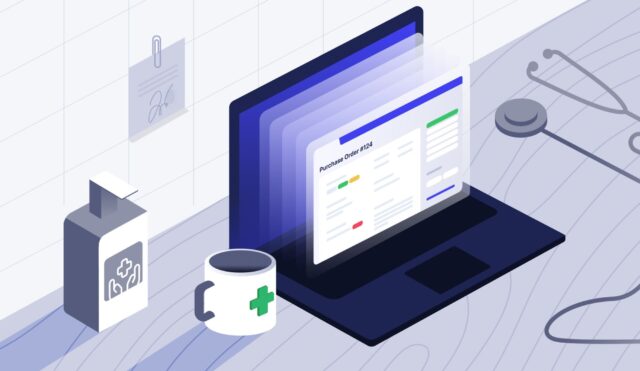Agra, a city renowned for its cultural heritage, is also home to a growing healthcare sector. As the healthcare industry rapidly advances, startups in Agra face the challenge of staying competitive by offering cutting-edge services while managing costs. Technology is playing a pivotal role in the transformation of healthcare, and software solutions are at the heart of this change. Healthcare startups can benefit immensely from the right tools, enhancing patient care, optimizing operations, and maintaining regulatory compliance.
In this blog, we’ll explore the best software solutions for Agra-based healthcare startups looking to scale their operations and improve patient outcomes.

1. Electronic Health Records (EHR) Systems
Electronic Health Records (EHR) systems are the backbone of modern healthcare. EHR software allows healthcare providers to store, manage, and access patient data electronically, eliminating the need for paper records. For startups, having an efficient EHR system is crucial for streamlining patient care, improving data accuracy, and enhancing collaboration between healthcare professionals.
Affordable, cloud-based EHR systems like Practo, Mediware, or Kareo are great options for Agra-based healthcare startups. These platforms offer easy integration, compliance with medical standards, and features such as patient portals, billing management, and real-time data sharing.
2. Telemedicine Platforms
With the growing demand for remote healthcare services, telemedicine software is essential for healthcare startups looking to expand their reach. Telemedicine platforms allow doctors to consult with patients online, reducing the need for in-person visits and providing access to care for those in rural or underserved areas.
Startups can consider using solutions like Doxy.me, Zoom for Healthcare, or MDLive, which offer secure video consultations, appointment scheduling, and virtual waiting rooms. These platforms also integrate seamlessly with EHR systems, allowing for a smooth flow of patient information between in-person and remote visits.
3. Practice Management Software
Running a healthcare startup involves managing various aspects of the business, from appointment scheduling to billing and resource allocation. Practice management software (PMS) can automate and streamline these processes, allowing startups to focus on delivering high-quality care.
Software solutions like SimplePractice, TheraNest, and CareCloud offer features that include scheduling, patient records, billing, and reporting. These systems enable healthcare providers to reduce administrative workload, optimize appointment booking, and manage finances more efficiently.
4. Patient Engagement Software
Patient engagement is key to providing personalized care and improving health outcomes. Engaging with patients via regular communication, reminders, and feedback tools can significantly increase treatment adherence and satisfaction. Healthcare startups can use patient engagement software to foster better relationships with their patients.
Solutions like Luma Health, Solutionreach, and Updox offer comprehensive patient engagement tools, including automated reminders, surveys, secure messaging, and patient portals. These platforms help healthcare providers keep patients informed and connected, improving their overall experience with the healthcare system.
5. Medical Billing Software
Medical billing is a complex process that involves insurance claims, payments, and regulatory compliance. For healthcare startups, managing billing manually can lead to errors and delays, affecting cash flow and patient satisfaction. Medical billing software automates the billing process, ensuring accuracy and compliance with industry regulations.
Popular software options such as Kareo Billing, AdvancedMD, and TherapyNotes are tailored to the needs of small healthcare providers and startups. These solutions offer end-to-end billing management, including insurance verification, claims submission, payment tracking, and revenue cycle management.
6. Healthcare CRM Software
Customer Relationship Management (CRM) software tailored for healthcare can help startups manage relationships with patients and other stakeholders, such as suppliers and partners. Healthcare CRM systems centralize patient information, track interactions, and provide tools for managing outreach and marketing efforts.
Platforms like Healthgrades CRM, Salesforce Health Cloud, and Pipedrive offer healthcare-focused features such as patient segmentation, appointment tracking, and automated follow-ups. These tools help healthcare startups improve patient retention, streamline communication, and deliver personalized care.
7. Inventory Management Software
For healthcare startups that deal with medical supplies, pharmaceuticals, or equipment, effective inventory management is crucial. Inventory management software helps track stock levels, manage reordering, and ensure compliance with regulations for storing and distributing medical products.
Software like EZOfficeInventory, Asset Panda, and Cin7 offer inventory tracking, barcoding, and automated alerts for reordering. These tools help healthcare providers avoid stockouts, reduce wastage, and optimize supply chain management.
8. HIPAA-Compliant Communication Tools
Data security and privacy are paramount in healthcare, particularly with sensitive patient information. Startups must use communication tools that comply with the Health Insurance Portability and Accountability Act (HIPAA) to ensure patient data is protected during interactions between healthcare professionals and patients.
Tools like HIPAA Vault, Spruce Health, and Paubox offer secure messaging, encrypted emails, and video conferencing solutions that meet HIPAA standards. These platforms provide the security necessary for handling patient information, ensuring that startups remain compliant with healthcare regulations.
9. Artificial Intelligence and Machine Learning Tools
Artificial Intelligence (AI) and Machine Learning (ML) are increasingly being adopted in healthcare to improve diagnostics, personalize treatment, and predict patient outcomes. For startups looking to innovate, AI-based tools can offer valuable insights and enhance patient care.
AI-powered platforms like IBM Watson Health, Google Health, and Zebra Medical Vision provide diagnostic support, predictive analytics, and data-driven decision-making capabilities. These tools can assist startups in offering more accurate diagnoses, optimizing treatment plans, and improving patient care.
10. Data Analytics Software for Healthcare
Data analytics is critical for healthcare startups to understand patient trends, monitor treatment outcomes, and optimize operations. Data analytics software can help startups make informed decisions by analyzing large sets of patient data and providing actionable insights.
Solutions like Tableau, Power BI, and Qlik Sense offer healthcare-specific data analytics tools that help providers track KPIs, patient satisfaction, and clinical performance. These platforms can be integrated with EHR systems and other tools, allowing startups to have a comprehensive view of their operations and patient care.
Conclusion
Healthcare startups in Agra are uniquely positioned to address the growing demand for modern healthcare services, and the right software solutions can be a game-changer in achieving this. From EHR systems to telemedicine platforms, inventory management, and AI-powered tools, the best software solutions can help startups streamline operations, enhance patient care, and drive innovation.


No responses yet